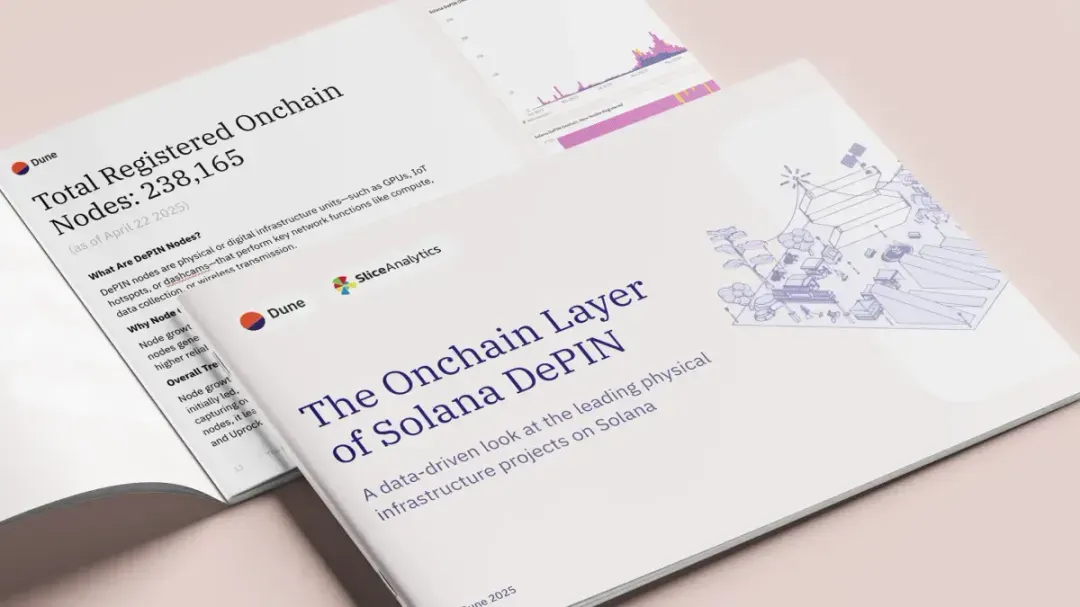Texas resident on the hook for $12.5 million in creditor claims after running a crypto ‘Ponzi scheme’
2025/09/11 03:24
Fuller allegedly ran a crypto investment company called Privvy Investments, and used investor funds on personal purchases.
Clause de non-responsabilité : les articles republiés sur ce site proviennent de plateformes publiques et sont fournis à titre informatif uniquement. Ils ne reflètent pas nécessairement les opinions de MEXC. Tous les droits restent la propriété des auteurs d'origine. Si vous estimez qu'un contenu porte atteinte aux droits d'un tiers, veuillez contacter service@support.mexc.com pour demander sa suppression. MEXC ne garantit ni l'exactitude, ni l'exhaustivité, ni l'actualité des contenus, et décline toute responsabilité quant aux actions entreprises sur la base des informations fournies. Ces contenus ne constituent pas des conseils financiers, juridiques ou professionnels, et ne doivent pas être interprétés comme une recommandation ou une approbation de la part de MEXC.
Partager des idées
Vous aimerez peut-être aussi

Solana DePIN Report: From "mining" to "mapping", how can ordinary people make money without doing anything?
Based on the latest research report jointly released by Dune and Slice Analytics, this article conducts an in-depth analysis of the development status, market performance and on-chain data of multiple core DePIN projects on Solana.
Partager
PANews2025/05/01 15:10
Partager

Texas Ponzi Scheme Debtor Denied $12.5M Bankruptcy Protection in Crypto Case
The U.S. Trustee Program (USTP) has secured a judgment denying bankruptcy protection to a Texas man who attempted to evade more than $12.5 million in debts linked to a cryptocurrency Ponzi scheme.
On August 1, the Bankruptcy Court for the Southern District of Texas entered a default judgment against Nathan Fuller, owner of Privvy Investments LLC. Fuller had filed for Chapter 7 bankruptcy in October 2024, shortly after a state court appointed a receiver to seize his assets following investor lawsuits.
But federal investigators found that Fuller concealed assets, falsified documents, and lied under oath in an effort to avoid repaying creditors.
Bankruptcy Court Bars Crypto Scheme Operator From Discharging $12.5M
According to the USTP, Fuller used Privvy Investments to solicit funds under the guise of crypto investments, only to divert investor money for personal use.
Records show that he spent heavily on luxury items and gambling trips and purchased a nearly $1 million home for his ex-wife, who was also involved in the business. Despite the separation, Fuller continued to reside at the property.
U.S. Trustee Kevin Epstein, who oversees Region 7 covering the Southern District of Texas, said the ruling underscores the program’s stance against fraud. “Fraudsters seeking to whitewash their schemes will not find sanctuary in bankruptcy,” Epstein said in a statement.
“The USTP remains vigilant for cases filed by dishonest debtors, who threaten the integrity of the bankruptcy system.”
Investigators alleged that Fuller not only concealed extensive assets but also failed to maintain records and submitted false testimony in both his personal bankruptcy filing and the one filed on behalf of Privvy.
At one point, Fuller was held in civil contempt for failing to comply with court orders. During proceedings, he admitted to operating Privvy as a Ponzi scheme, fabricating documentation, and providing false statements designed to obstruct the work of the court-appointed Chapter 7 trustee.
After failing to respond to the USTP’s complaint, the court entered a default judgment in favor of the agency. As a result, Fuller remains personally liable for his debts, including more than $12.5 million in unsecured obligations listed in his filings. Creditors are now free to continue collection efforts against him.
The USTP said its mission is to protect the integrity of the bankruptcy system for debtors, creditors, and the public. The agency emphasized that the outcome in Fuller’s case demonstrates its commitment to holding dishonest actors accountable.
The judgment adds another chapter to the mounting scrutiny around crypto-linked investment schemes. While legitimate blockchain firms continue to raise capital and build infrastructure, fraudulent ventures such as Fuller’s highlight the risks facing investors.
Earlier this year, web3 wallet infrastructure firm Privy, a separate company unrelated to Fuller’s operation, closed a $15 million funding round led by Ribbit Capital, bringing its total raised to more than $40 million.
The company’s wallet-enabled stack powers projects like Hyperliquid, Farcaster, OpenSea, and Blackbird, serving over 50 million accounts across payments, DeFi, and gaming.
The juxtaposition of these developments reflects a maturing crypto sector still grappling with trust issues stemming from fraud.
Fraud Shadows Over Crypto Sector as Similar Cases Highlight Investor Risks
In a similar case, on July 8, San Jose-based fintech firm Linqto filed for Chapter 11 bankruptcy in the Southern District of Texas, exposing deep cracks in its business model.
Once marketed as a gateway for everyday investors to buy pre-IPO shares in tech giants like Ripple and CoreWeave, the platform now faces allegations that customers may never have actually owned the shares they believed they purchased.
The company listed assets and liabilities between $500 million and $1 billion, with more than 10,000 creditors potentially affected.
Chief Restructuring Officer Jeffrey Stein said “years of mismanagement” and securities law violations dating back to 2020 left Linqto possibly insolvent, further shaking confidence in retail access to private markets.
Separately, the U.S. Department of Justice announced yesterday a civil forfeiture action to seize over $5 million in Bitcoin stolen through SIM swap attacks.
Prosecutors said attackers hijacked victims’ phone numbers between October 2022 and March 2023, intercepting authentication codes to drain crypto wallets.
The stolen funds were allegedly funneled through multiple wallets and eventually into an account at Stake.com, an online casino.
Investigators accuse the perpetrators of using circular transactions to disguise the source of the Bitcoin before consolidation
Partager
CryptoNews2025/09/11 06:09
Partager

Let’s take a look at the currently popular crypto payment products. Exchanges are the main players. What are their highlights and benefits?
The market for encrypted payment products and payment cards (U cards) is becoming increasingly diverse. With the recent launch of new products such as OKX Pay, Infini Card, and Solayer Emerald Card, the discussion has heated up again. In this article, PANews sorted out several popular Web3 payment products, focusing on their payment functions and reward mechanisms.
Partager
PANews2025/05/02 13:51
Partager